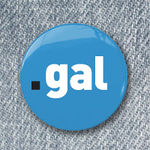Difference between revisions of "PuntoGal"
| Line 28: | Line 28: | ||
==Supporters== | ==Supporters== | ||
| − | The dotGal initiative is | + | The dotGal initiative is supported by over 12,000 people around the world so far. Some organizations supporting the project include:<ref>[http://www.icann-studienkreis.net/reynolds.pdf ICANN-Studienkreis]</ref> |
| − | + | * Galician Royal Academy | |
| − | + | * Galician Council of Culture | |
| − | + | * University of Santiago de Compostela | |
| − | + | * Galician Radio & TV Company | |
| − | <ref>[http://www.icann-studienkreis.net/reynolds.pdf ICANN-Studienkreis]</ref> | ||
==External Links== | ==External Links== | ||
Revision as of 00:27, 23 November 2011
| Type: | non-profit |
| Industry: | Internet |
| Founded: | 2006 |
| Headquarters: | Apartado de Correos 55 15780 Santiago de Compostela |
| Country: | Spain |
| Email: | info[at]puntogal.org |
| Website: | PuntoGal.org |
| Facebook: | PuntoGal, PuntoGal |
| Twitter: | |
| Key People | |
| Manuel Gonzalez, President Camilo Regueiro, Vice President | |
PuntoGal Association is an organization that plans to apply to ICANN for a new TLD, .gal, to represent the Galician community in Spain and abroad. The goal is to reinforce the community that uses and represents this ethnicity and language.[1] They were Inspired by the .cat TLD, which was successfully created in 2005 via an agreement between ICANN and PuntCat, and is directed at the Catalan community in Spain and abroad.[2]
PuntoGal association was created in 2006 to realize the dream of having .gal domain.[3] For the past 5 years, the association is active in ICANN activities and meetings to better represent their proposal.[4] PuntoGal presented their agenda on 10th ICANN Studienkreis meeting held in January 2010 in Barcelona.[5]
Supporters
The dotGal initiative is supported by over 12,000 people around the world so far. Some organizations supporting the project include:[6]
- Galician Royal Academy
- Galician Council of Culture
- University of Santiago de Compostela
- Galician Radio & TV Company
External Links
- PuntoGal news channel.
